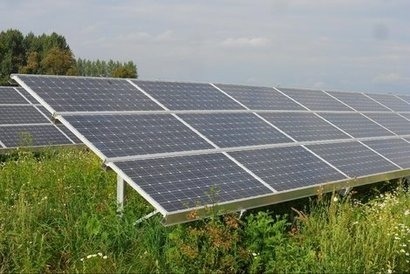
Under the revised Renewable Energy Sources Act, 2014, incentive rates for renewable electricity will no longer be set by the German Federal Government but by a market mechanism. The aim of the tender process is to cut the costs of Germany’s expanding renewable energy programme while at the same time maintaining the diversity of market players and meeting the government’s expansion targets. The pilot scheme is being tested for solar farms before it is applied to all other renewable energy technologies in 2017.
“This pilot scheme promoting solar farms marks a new chapter in incentives for renewable energy” said Jochen Homann, Bundesnetzagentur President. “Financial incentives will no longer be based on rates set by the administration but will be determined by the competitors themselves. We will be keeping a close eye on the tenderers to make sure they stick to the rules of the game. We are confident that the tenders will mirror our current diversity of market players.”
Mr Homann added that the pilot scheme will enable the government to see just how well the scheme works and make any necessary improvements.
Three rounds of tenders for solar farms will be launched each year with details published on the Bundesnetzagentur's website about eight weeks in advance together with the strict requirements for the tender documents. Investors have until 15 April to submit their first-round tenders to the Bundesnetzagentur. A total of 150 MW is being put out for tender during the first round, with the maximum set at 11.29 cents per kWh. Each tender must include information and documents on the land to be developed for the solar farm. It must also specify an incentive rate (in cents per kWh) for the electricity to be generated and the farms capacity in kilowatts.
Contracts will be awarded from the bottom up to the tenders with the lowest rates until the total volume put out for tender has been reached.
For additional information:

